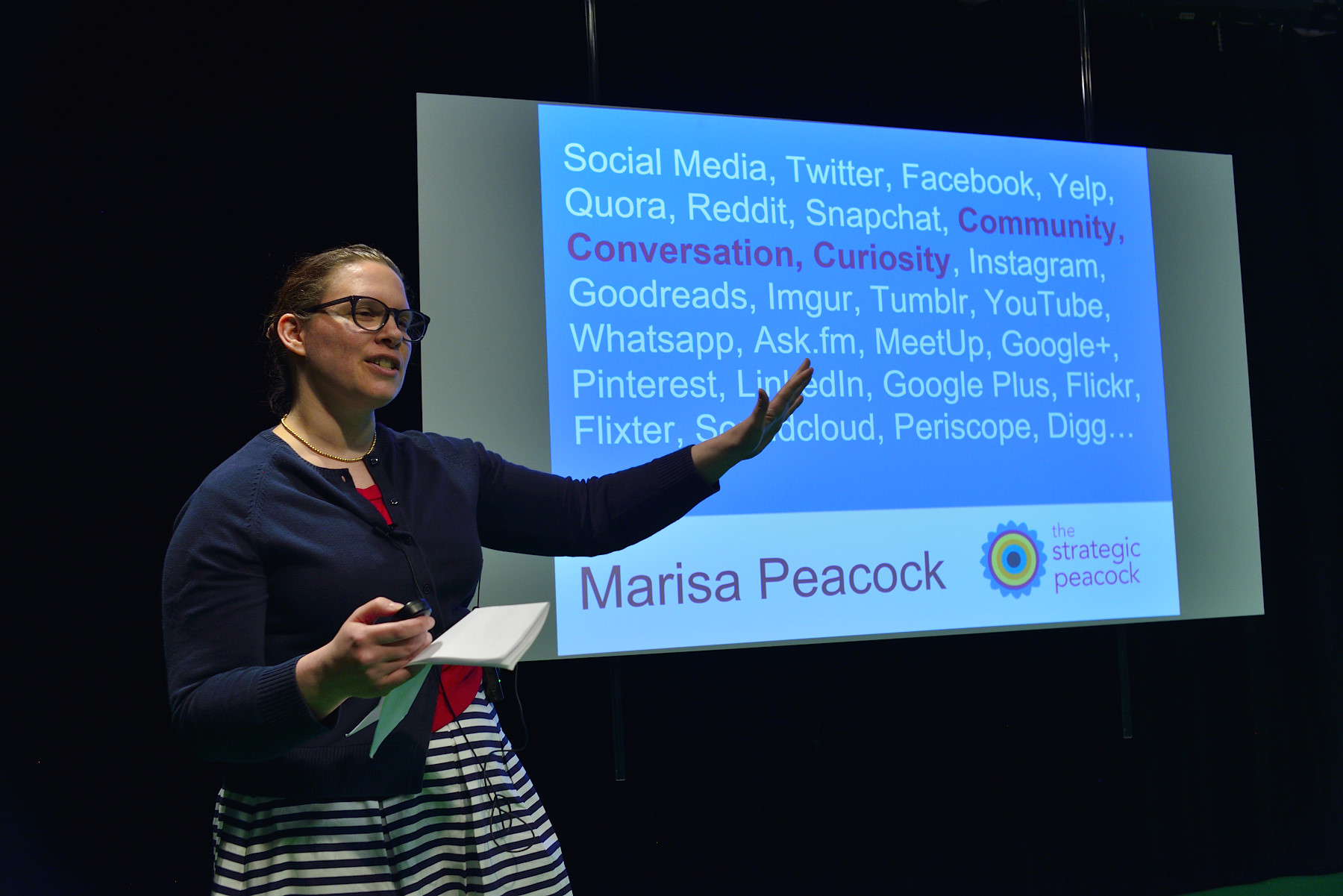On Tuesday, March 28, I presented as a part of Story DC, an event series designed to bring together storytellers across disciplines to grow and innovate together. The following is the text of my presentation.
When I was in graduate school, my thesis asserted that the American West was not built by rugged individualism, but rather by community. I’ve come to believe the same is true about what we regard as the Wild West of the Internet — social media. Like the old west, social media is unregulated and its open expansion calls out to us, and it is also built on a strong foundation of community, conversations and curiosity.
Community
Community is a feeling of fellowship with others, as a result of sharing common attitudes, interests, and goals. And no where do we share more than on social media. Whether it’s on a discussion thread on Reddit, in a Twitter chat, a Facebook group or through snaps on Snapchat. And we wouldn’t share if there wasn’t someone else to receive it — and there’s always someone interested, whether you’re dissecting television shows, finding new books to read or posting photos of all the food you want, without judgement. But community goes far beyond having common interests.
The psychology of community exceeds an individual focus and integrates social, cultural, economic, political, environmental, and international influences to promote positive change, health, and empowerment at individual and systemic levels.
In other words, once you’ve built a community of fans and followers, their loyalty can help shape experiences and influence the outcomes of events. In a community, nothing happens in isolation; and on social media, nothing is private. The forces that community can exert can often expedite the process that were designed to regulate and govern community, in the first place. Twitter taking too long to suspend an account? Capture police intimidation on Facebook Live? Filming a Congressional sit in on periscope? The community supports you.
Conversations
In the American West, women talked with other women as they shucked corn, quilted or washed the laundry. They shared stories from their families back east, talked about their faith and read letters from their husbands expanding westward. On social media, we talk to people we’ve never met, those with opposing view points, celebrities, presidents and politicians, our best friends and neighbors. We talk about what we know, what we don’t know and alternative facts. We categorize our conversations by topic or event. Sometimes we talk to change minds, or simply to preach to the choir. Through these conversations, we learn, we form opinions, we are influenced and motivated to take action beyond our keystrokes.
The stories we tell through these conversations work to shape the hearts and minds of those within the community. When we meet someone who’s had an abortion, comes out to a family member or has been sexually assaulted, we learn something new about that experience, and about ourselves. These conversations allow us to put ourselves in someone else’s shoes and consider the similarities.
Curiosity
But not every conversation within our communities is serious. Did you know that if you’re looking for the perfect desk chair, Twitter is the place to go? Looking for the perfect wedding destination — Pinterest. If you’re simply looking for a place to eat — Yelp has your back. Humans are inherently curious and the wisdom of the crowds has never been more prominent. The idea that we’d ask a crowd of people who we don’t know for advice is a testament to the fellowship of community. And when we are curious about something, it makes it easier to learn.
Of course, not all communities are welcoming and some conversations may make you want to run screaming, and curiosity did kill the cat, after all. Community, conversations and curiosity may be the foundations of social media, but it our social responsibility to watch over a community to help it thrive.
Photo Credit: Ross Stansfield

